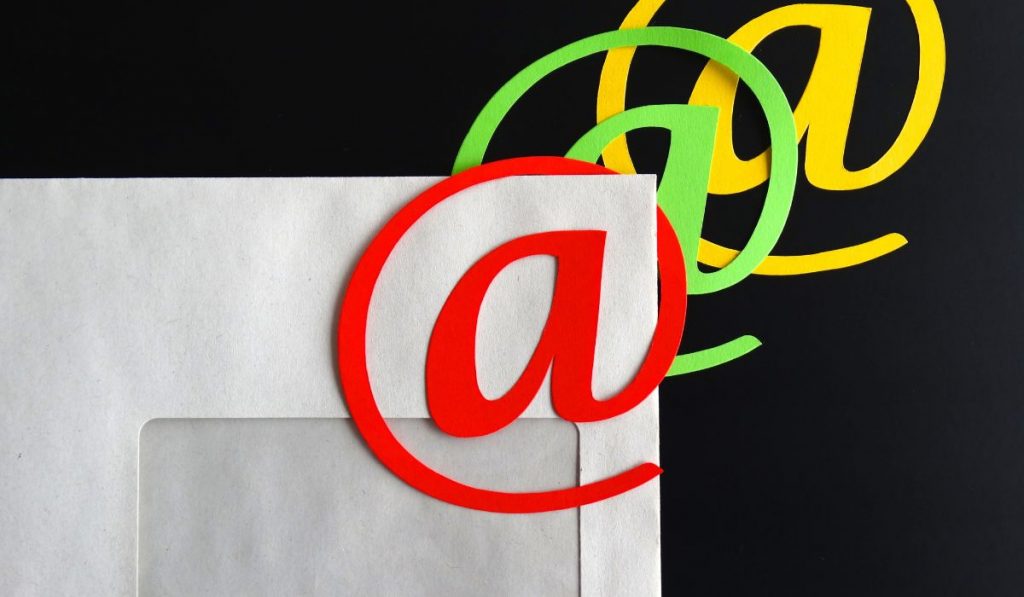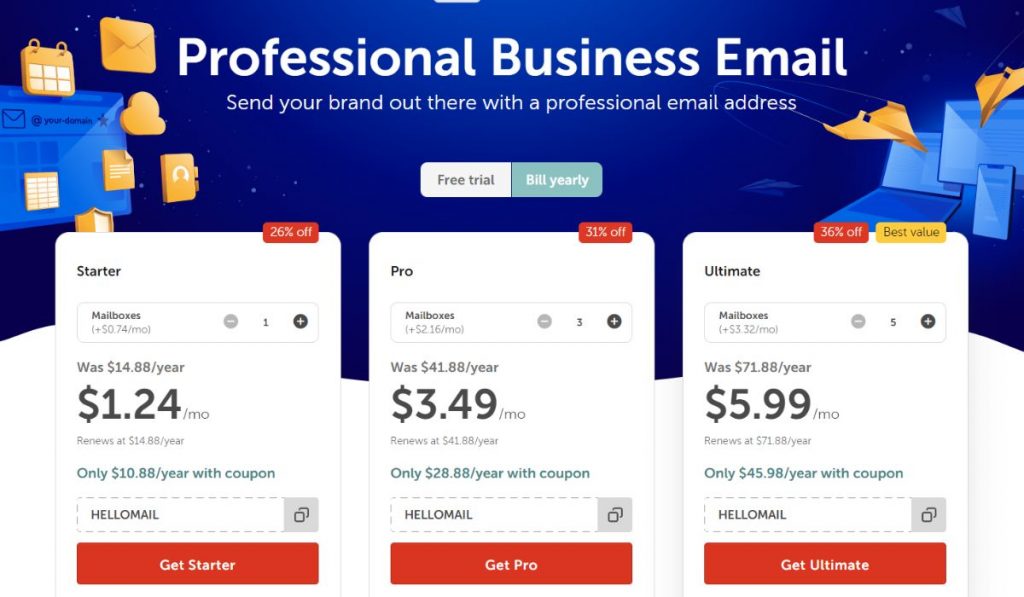
An email domain should be consistent with your brand
Email domains are a critical component of every company’s communication strategy. Businesses use email daily to communicate with potential clients, employees, and other partners. Having an email address that incorporates the name or brand of your organization is important for establishing professionalism.
What is an email domain? In simple words, an email domain is the portion of the address that follows the @ symbol. For example, if your email address is [email protected],
yourdomain.com is the email domain.
For personal emails, most people use gmail.com or yahoo.com. In a business context, corporations practically always have their own email domain.
What are the different types of email domains?
There are many types of email domains, but we will talk about personal and corporate email domains.
Personal email domain: There are many types of personal email domains, but the most common are Gmail and Yahoo. These are all free email services that give a variety of features to their subscribers. Gmail is the most popular email service in the world, with over 1 billion active users. Yahoo is the second most popular email provider, with about 300 million active users. These email domain names are typically simple to set up and do not necessitate the use of any special credentials.
Corporate email domain: In contrast, corporate email domain names are often connected with businesses and organizations. Businesses must normally purchase a custom email address from a web hosting firm to set up a corporate email domain. Custom email addresses typically incorporate the company’s name or website address, which makes them easy to remember and market.
How do you choose an email domain?
When selecting an email domain, there are a few factors to consider.
- The first consideration is whether you want a personal or professional email account. If you only use your email for personal purposes, you can use any domain you like. If you use your email for business, you should select a domain that is both professional and easy to remember. You should also think about picking a domain that is related to your website if you have one.
- The second factor to consider is the length of your email address. The shorter the domain, the better, so pick one that’s simple to type and remember.
- Compatibility and capabilities Understand all of the critical aspects. Consider how compatible the email domain provider is with your desired email domain use. This can take the form of the convenience of using a mobile email application while on the go to keep connected to your email domain name and associated aliases. This can also refer to how simple the email domain provider interface is to utilize for your specific needs. Examining the amount of storage offered for paid and free email domain providers also informs you of capacity, which allows you to assess whether an email domain provider will fulfill your needs.
- Coverage: Many email domain providers only serve a few countries. If you live outside of these countries, you will be unable to use unique paid email names and, in some situations, custom-free email domains.
- Think about the safety of your email account. You should set an email domain password that is difficult to guess and select hosting with a strong security reputation.
What are the advantages of using a domain email?
A domain email account offers various advantages over free email services.
For starters, it gives your company a professional appearance. Clients and customers are more likely to trust a company with a professional email address than a free email account.
Second, a domain email is more likely than a free email account to be delivered to the recipient’s inbox. This is because free email providers frequently have tougher spam filters that can prevent valid communications.
Thirdly, a domain email account can be linked to other business tools like CRM software. This enables you to manage all of your business communications in one location.
Finally, you may use a domain email account to generate personalized email newsletters and marketing campaigns. This aids in the promotion of your brand and the development of consumer loyalty. Overall, the advantages of utilizing a domain email exceed the costs.
How to get an email domain?
Here’s how to set up a custom email domain if you don’t already have one.
You will require two items: a domain name and a hosting account. Most web hosting companies include email hosting; however, pricing and features differ.
#1 Choose a hosting/domain provider

Many hosting firms, such as Bluehost and Namecheap, offer email hosting and a custom domain name. Just like a website hosting service assists you in hosting your website on a server, email hosting companies do the same.
Consider what is included in each package when selecting a hosting or domain provider. For example, you should examine the number of accessible mailboxes and the storage size of each mailbox to avoid deleting important communications for lack of storage space.
#2 Check for domain availability
You’ll need to choose an email domain name if you don’t have one. It is great if the email domain name is the same as the name of your organization or website.
#3 Register an available email domain
Enter your credit card information on the checkout screen and register your email domain. Following payment, you must follow the steps provided by your hosting provider to create new email addresses.
Once you’ve obtained your custom email domain name, you can begin building your email list, connecting your domain to your preferred email marketing platform, and sending emails to subscribers interested in your products and services.
Conclusion
If you own a business, you’ll need a good email address to communicate with your current and future customers. This is why you should get a domain email address with your company name as an extension.
Free email accounts are adequate for basic email needs, but they are not ideal if you require more functionality or security.















0 Comments